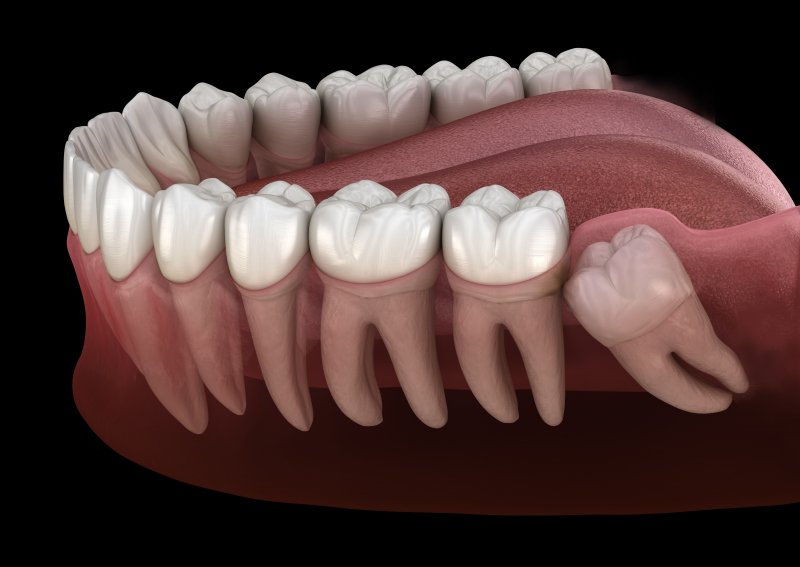
Wisdom teeth may have been useful for some of our earlier ancestors. However, our diets have changed significantly, and our jaws aren’t as large as theirs were. This means that wisdom teeth can sometimes do more harm than good. If your wisdom teeth are starting to cause you discomfort, there could be a few different reasons why. Continue reading to learn the causes of wisdom teeth pain and what you can do about it.
5 Reasons Behind Wisdom Tooth Pain
There are multiple different things that could be the culprit of your discomfort. Here are the most common:
- Growing Pain: The pain you are experiencing could be your wisdom teeth growing in. As they break through the gums, they can result in swelling and soreness.
- Tooth Decay: Since wisdom teeth don’t usually have much space, they are often very close to their neighboring teeth. This can make it difficult to keep them clean and spot cavities.
- Impaction: If your wisdom tooth becomes impacted, it can result in swelling, pain, jaw discomfort, and difficulty opening the mouth.
- Cyst Development: When a wisdom tooth is impacted, cysts can form. This can cause pain of the tooth and jawbone.
- Gum Disease: Gum disease is more likely to form on wisdom teeth because their location and lack of space make them more challenging to clean.
How to Handle Wisdom Tooth Pain
Having your wisdom teeth removed is the best way to prevent any wisdom tooth-related issues and discomfort. Schedule an appointment with your dentist to see if this is the right option for you. Until then, here are some helpful tips to manage your pain:
- Cold Compress: Applying a cold compress or an ice pack can help to temporarily numb the area, reducing discomfort.
- Pain Relievers: Anti-inflammatories, like ibuprofen, can help to temporarily reduce pain. Be sure to closely follow the directions on the packaging.
- Benzocaine: There are a variety of brands that make mouth-numbing gels that contain benzocaine. These can help to numb and dull gum pain.
- Salt Water: Using a mixture of salt and water, rinse your mouth. This can help to dislodge lingering food particles and kill bacteria that could be worsening your discomfort.
Wisdom tooth pain isn’t fun, so it’s worthwhile getting checked out by your dentist. This way,, you can put together a plan to relieve you of pain and keep your smile healthy!
About the Author
Dr. Niki Jayswal earned her dental doctorate from the University of Southern California School of Dentistry. To stay up to date with all the latest advancements in dentistry, she is committed to continuing education and completing advanced training courses. Currently, she is a proud member of the American Dental Association, Texas Dental Association, and the Dallas County Dental Society. To learn more about wisdom tooth extraction or to schedule a consultation, visit her website or call (972) 366-4452.
